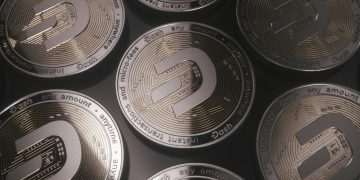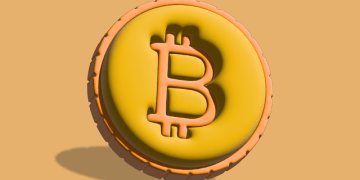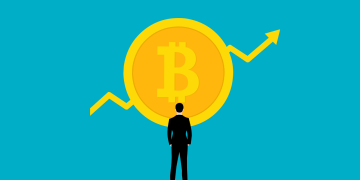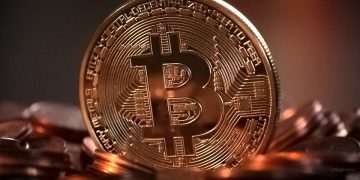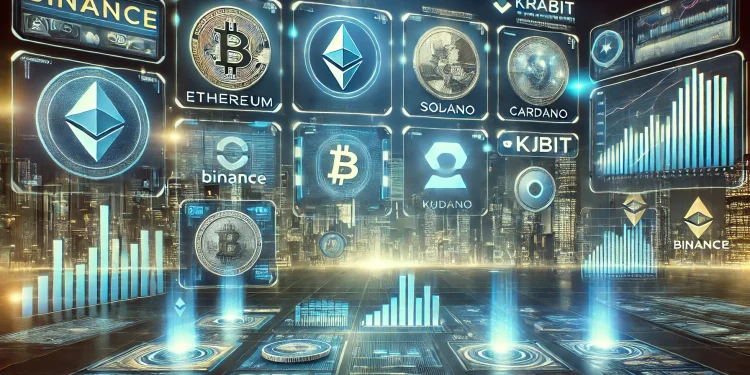Cryptocurrency trading has evolved into a global phenomenon, with traders seeking out the best platforms to buy, sell, and trade altcoins. Altcoins, or alternative coins, refer to all cryptocurrencies besides Bitcoin. As the crypto market grows, the demand for efficient, secure, and feature-rich exchanges tailored to altcoin traders continues to surge. In 2024, the cryptocurrency landscape is more competitive than ever, with platforms offering cutting-edge technology, liquidity, security features, and a wide range of altcoins.
In this article, we will review the top 10 crypto exchanges for trading altcoins in 2024, highlighting their strengths, security features, and unique offerings to help traders choose the best platform for their needs.
1. Binance
Overview:
Binance remains the undisputed leader among crypto exchanges, particularly for altcoin traders. Established in 2017, Binance has grown into the largest exchange by trading volume. Binance provides a vast array of altcoins, with over 500 supported coins and trading pairs, making it an ideal platform for altcoin enthusiasts.
Key Features:
- Wide Range of Altcoins: Binance offers one of the largest selections of altcoins, including many newer tokens.
- Advanced Trading Tools: Traders can access features like margin trading, futures contracts, and staking, making it a comprehensive platform for both beginners and seasoned traders.
- Binance Smart Chain (BSC): BSC allows for lower transaction fees and faster processing, with its ecosystem supporting decentralized applications (DApps) and decentralized finance (DeFi) tokens.
- Security: Binance is known for its high-security standards, utilizing two-factor authentication (2FA), cold storage for funds, and an insurance fund to cover potential losses from hacks.
Pros:
- Low trading fees
- Access to a huge variety of altcoins
- Strong liquidity for most altcoin markets
Cons:
- Regulatory challenges in some regions
2. Coinbase Pro
Overview:
Coinbase Pro, the professional trading platform of Coinbase, is an excellent choice for altcoin traders looking for simplicity combined with robust trading tools. Coinbase has made a name for itself as one of the most secure and user-friendly exchanges in the crypto space.
Key Features:
- User-Friendly Interface: While designed for experienced traders, the platform’s interface is clean and easy to navigate.
- Security Focused: Coinbase is renowned for its stringent security measures, including offline cold storage and insurance for digital assets stored on the platform.
- Access to a Wide Range of Altcoins: Coinbase Pro provides access to various altcoins, although its selection is more limited compared to Binance.
Pros:
- High liquidity
- Strong security measures
- U.S. regulated
Cons:
- Higher fees compared to some competitors
- Fewer altcoin offerings
3. KuCoin
Overview:
KuCoin is a global crypto exchange that has rapidly gained popularity, particularly among altcoin traders. The platform is known for its large selection of tokens, competitive fees, and strong user community.
Key Features:
- Altcoin Variety: KuCoin boasts over 700 altcoins, offering traders a rich selection of lesser-known and new tokens.
- KuCoin Shares (KCS): Holders of KCS tokens can receive discounts on trading fees and share in a portion of the exchange’s revenue.
- Advanced Trading Features: KuCoin offers features such as margin trading, futures trading, and staking.
Pros:
- Competitive fees
- Large selection of altcoins
- Strong community support
Cons:
- Lesser regulatory oversight compared to some larger exchanges
- Limited fiat trading pairs
4. OKX
Overview:
OKX is a top-tier exchange for altcoin traders, offering a range of advanced trading options and a wide selection of altcoins. With a focus on technology and security, OKX provides tools such as futures trading, perpetual swaps, and staking opportunities.
Key Features:
- Diverse Altcoin Listings: OKX supports hundreds of altcoins, providing traders with a wide variety of options for investment.
- Advanced Trading Tools: Futures, margin trading, and staking options are available, catering to both beginners and advanced traders.
- DeFi Integration: OKX is at the forefront of decentralized finance, offering access to various DeFi protocols directly from its platform.
Pros:
- Highly secure platform
- Advanced trading tools
- Low trading fees
Cons:
- Interface can be overwhelming for new traders
- Limited educational resources for beginners
5. Bybit
Overview:
Bybit is a fast-growing exchange known for its focus on derivatives and futures contracts, but it also offers a strong range of altcoins for spot trading. Bybit has built a reputation for providing deep liquidity and a user-friendly interface.
Key Features:
- Deep Liquidity: Bybit offers high liquidity, particularly for its altcoin-futures markets, making it an excellent choice for professional traders.
- Risk Management Tools: The platform provides features such as stop-loss and take-profit orders, essential for managing risk in volatile markets.
- 24/7 Customer Support: Bybit is known for its excellent customer service, with around-the-clock support available.
Pros:
- User-friendly for futures and spot trading
- Strong liquidity
- Excellent customer support
Cons:
- Primarily focused on futures trading
- Limited fiat currency options for deposits
6. Kraken
Overview:
Kraken is one of the oldest and most respected crypto exchanges, providing a secure and regulatory-compliant platform for altcoin traders. It offers an extensive range of altcoins and pairs, coupled with advanced security features.
Key Features:
- Wide Altcoin Selection: Kraken offers over 200 altcoins for trading, with a focus on both major and emerging projects.
- Regulatory Compliance: Kraken is one of the few exchanges to be fully regulated in multiple jurisdictions, offering peace of mind to traders.
- Staking Services: Kraken provides staking options for several altcoins, allowing users to earn rewards on their holdings.
Pros:
- Highly secure and regulated
- Strong customer support
- Competitive fees for advanced traders
Cons:
- Verification process can be lengthy
- Limited payment methods
7. Huobi Global
Overview:
Huobi Global is a prominent exchange for altcoin trading, particularly in Asia, offering an extensive range of digital assets, staking options, and DeFi integration. Established in 2013, Huobi has grown to serve millions of users globally.
Key Features:
- Diverse Altcoin Listings: With over 500 altcoins available, Huobi provides access to both popular and niche tokens.
- Earn Features: Huobi offers various earning opportunities, including staking, yield farming, and liquidity mining.
- Huobi Token (HT): Holding HT tokens grants users fee discounts and other benefits within the Huobi ecosystem.
Pros:
- Large selection of altcoins
- Competitive trading fees
- Strong focus on innovation and DeFi integration
Cons:
- Not available in some regions, including the U.S.
- Complex interface for beginners
8. Gate.io
Overview:
Gate.io is an established platform known for its vast selection of altcoins and trading pairs, making it one of the go-to exchanges for altcoin enthusiasts. Gate.io also provides a wide array of features, including futures contracts, margin trading, and staking.
Key Features:
- Massive Altcoin Selection: Gate.io supports over 1,000 cryptocurrencies, making it one of the largest exchanges for altcoin diversity.
- Margin and Derivatives Trading: In addition to spot trading, Gate.io offers margin and futures trading for a wide range of altcoins.
- Security: Gate.io implements strict security measures, including cold storage and two-factor authentication.
Pros:
- Huge selection of altcoins
- Advanced trading tools
- Secure platform
Cons:
- User interface can be overwhelming
- Limited fiat support
9. Bitfinex
Overview:
Bitfinex is a long-standing exchange known for its professional-grade trading tools, deep liquidity, and variety of altcoins. Despite controversies in the past, Bitfinex remains a popular platform for advanced traders looking for a high level of functionality and control.
Key Features:
- Advanced Trading Features: Bitfinex offers margin trading, lending, and OTC services, catering to experienced traders.
- High Liquidity: Bitfinex provides deep liquidity, especially for major altcoin pairs, ensuring smoother and faster trades.
- Wide Range of Altcoins: Over 200 cryptocurrencies are available for trading.
Pros:
- Advanced trading tools
- High liquidity
- Extensive altcoin offerings
Cons:
- Complex interface for beginners
- Not available in all regions, including the U.S.
10. MEXC Global
Overview:
MEXC Global is a relatively newer player in the crypto exchange world, but it has quickly risen to prominence, especially for altcoin traders. With a strong focus on emerging projects, MEXC offers access to a wide range of new and popular altcoins.
Key Features:
- Focus on New Tokens: MEXC is known for listing newly launched tokens, giving users early access to promising projects.
- Staking and Farming: MEXC offers various staking and yield farming options, allowing traders to earn passive income from their altcoins.
- Low Trading Fees: With some of the lowest fees in the market, MEXC is a cost-effective option for altcoin trading.
Pros:
- Large variety of new and emerging altcoins
- Low fees
- User-friendly interface
Cons:
- Limited fiat options
- Not as established as larger exchanges
Conclusion
When choosing a crypto exchange for trading altcoins in 2024, the right platform depends on your individual needs, trading style, and location. If you prioritize security and regulation, Coinbase Pro and Kraken may be the best fit. For those who value access to the widest range of altcoins, Binance, KuCoin, or Gate.io offer unparalleled variety. Meanwhile, if you’re focused on futures and margin trading, Bybit and Bitfinex provide the advanced tools you need.
Regardless of which exchange you choose, always ensure you’re using robust security practices, such as enabling two-factor authentication, using strong passwords, and only trading on trusted platforms. The world of altcoins is dynamic and fast-moving, and by selecting the right exchange, you can better navigate the opportunities and risks that come with it.
FAQs
1. What are altcoins?
Altcoins are cryptocurrencies other than Bitcoin. Popular examples include Ethereum (ETH), Solana (SOL), and Cardano (ADA), along with thousands of lesser-known coins.
2. How do I choose the best exchange for altcoin trading?
Consider factors like the range of altcoins offered, trading fees, security features, regulatory compliance, and the available trading tools.
3. Which exchange offers the most altcoins?
As of 2024, exchanges like Binance, KuCoin, and Gate.io offer the largest selection of altcoins, with hundreds of coins available for trading.
4. Are altcoin exchanges safe?
Most major exchanges use advanced security measures like two-factor authentication, cold storage, and insurance funds to protect user assets. Always choose reputable platforms with a strong track record.
5. Can I trade altcoins without Bitcoin?
Yes, most exchanges allow trading altcoins with fiat currencies or stablecoins like USDT, so you don’t need Bitcoin to start trading altcoins.
6. Are there any fees for trading altcoins?
Yes, every exchange charges a fee for trades, which can vary. Some platforms also offer discounts if you hold native tokens like Binance Coin (BNB) or KuCoin Shares (KCS).

